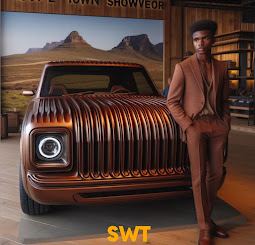The Africar today shown in these images above is one of three existing examples, this one is owned by Boudewijn Poelmann . To answer the question of how Boudewijn came into possession of the Africar, we have to go back in time, to the period in which the designer and developer Anthony Howarth showed the Africar to the world.
In 1983, Boudewijn worked as a marketing coordinator at Novib an Non-profit Organization affliated with Oxfam, where he was involved in fundraising and publishing stories. He was tipped off by a friend, who at the time was working as an editor at a TV station on a program that featured Anthony Howarth's project the 'Africar'. When Boudewijn and Anthony met, there was an immediate click. Boudewijn had been to Africa many times during his work for Novib. His experiences with the circumstances there made him know immediately that Anthony was working on 'a brilliant idea'. During the journey from the Arctic Circle to the equator, the convoy of Africar's also visited Amsterdam. As a publicity stunt, the cars drove down the steps of the Tropen museum: an idea hatched by Boudewijn.
The Africar's introduction stunt was a success. Not only did people indicate that they wanted to buy an Africar, they were prepared to pay a deposit for it. In the Netherlands, a potential importer came forward, the main dealer of Citroën in the Netherlands. A number of commercial parties and charities indicated there interest in the Africar, like Natuurmonumenten and the Red Cross. The market was there, all that was needed was production, Boudewijn recalls.
However, Anthony was not concerned with marketing, but with technical matters, such as developing a drive train. The money that was intended as a deposit for cars to be delivered went into research and development. Apart from the three previously produced 'Proofs of Concept', an Africar for full production was never built. All these troubles lead to the bankruptcy of the company behind the Africar in 1988, and the liquidation of the estate. What exactly happened to the three cars from the Arctic Circle-Equator trip is not entirely clear. In any case, the fact is that at the time of the bankruptcy the 'pickup' Africar was in the Netherlands.
In France, the other cars were used regularly. Anthony continued to tinker with the vehicles. The pickup truck that is now in the Netherlands was converted to a left hand drive vehicle and completely restored. Boudewijn and Anthony remained in touch with each other. The Africar remains relevant as a sustainable solution emboding the full potential of social impact for mobility in Africa.
Courtesy of
www.citroen-forum.nl















































